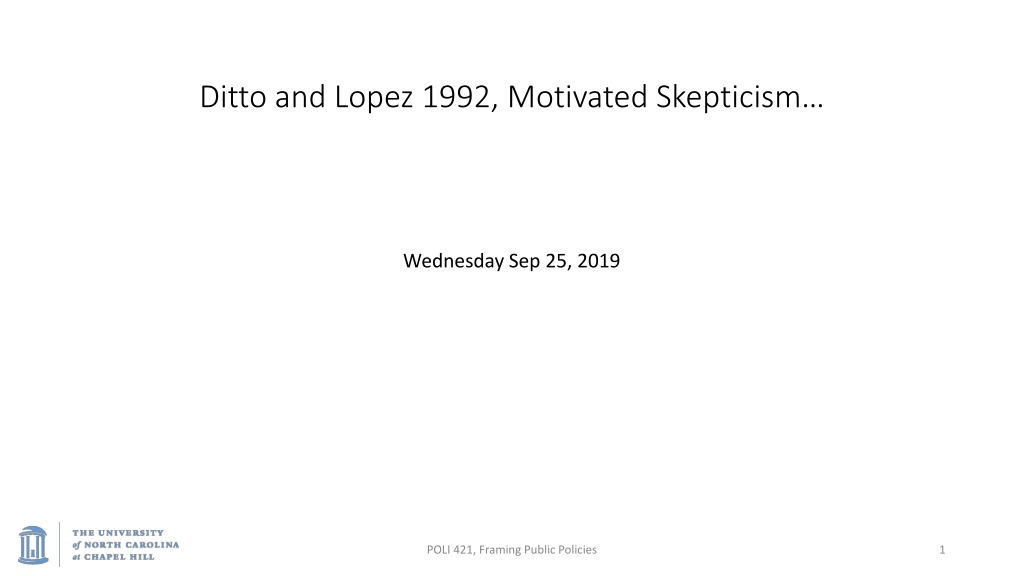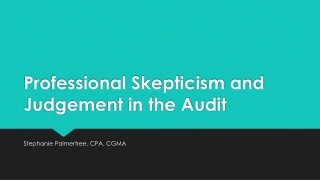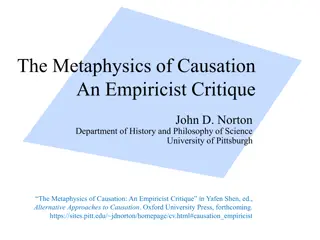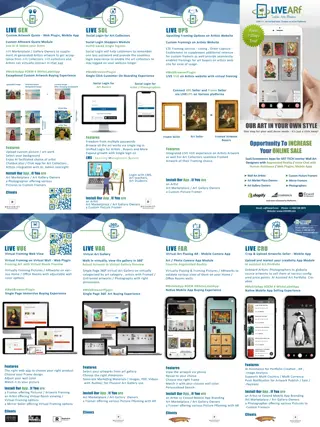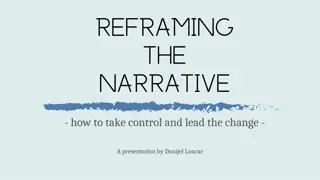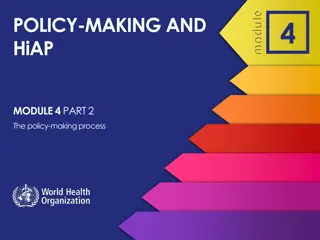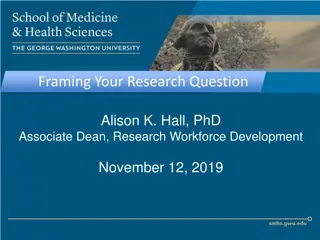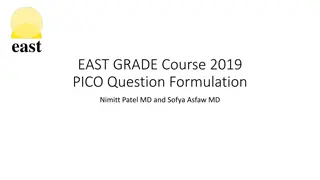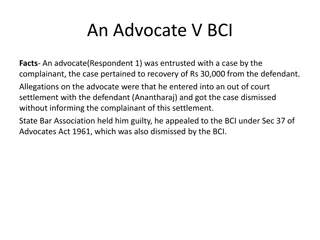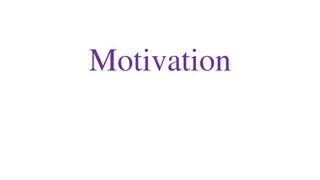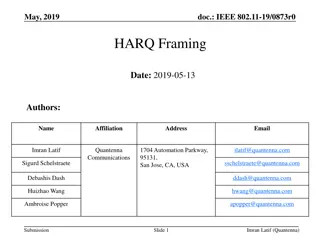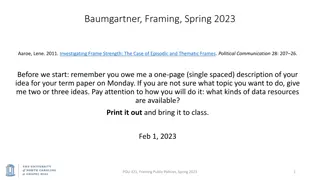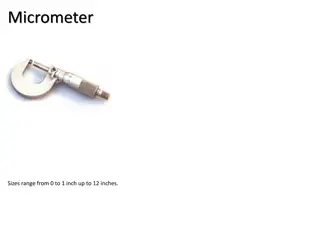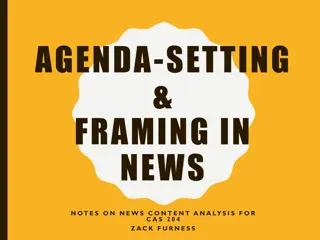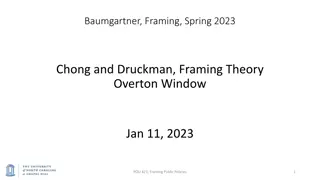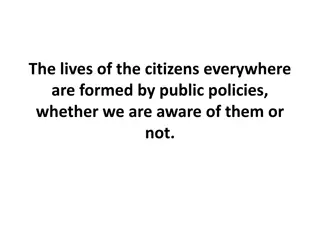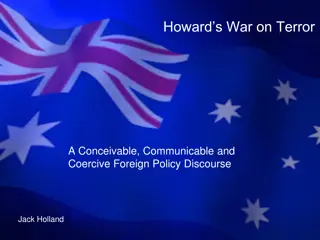Understanding Motivated Skepticism in Public Policy Framing
Exploring how individuals display motivated skepticism in evaluating information related to public policies and medical news, influencing their decisions and perceptions. The phenomenon is examined through studies highlighting biases towards preferred information, impacting how individuals rate intelligence and seriousness of medical findings. The limits of this bias are discussed in the context of accuracy goals, evidence clarity, and overcoming biases for informed decision-making in policy framing.
Download Presentation

Please find below an Image/Link to download the presentation.
The content on the website is provided AS IS for your information and personal use only. It may not be sold, licensed, or shared on other websites without obtaining consent from the author. Download presentation by click this link. If you encounter any issues during the download, it is possible that the publisher has removed the file from their server.
E N D
Presentation Transcript
Ditto and Lopez 1992, Motivated Skepticism Wednesday Sep 25, 2019 POLI 421, Framing Public Policies 1
Ditto and Lopez, Motivated Skepticism 1992, so 13 years later, they follow up on Lord, Ross, and Lepper Unwelcome medical news (such as a terminal illness!): seek out another doctor, as this one must be mistaken. Welcome medical news: accept at face value I m brilliant! (accept this obvious, and welcome, news easily) I m imperfect??? (ask for proof) Preference-consistent information v. preference-inconsistent information is subjected to different levels of scrutiny POLI 421, Framing Public Policies 2
The study, part I Rate people on intelligence, knowing you ll have to work with them. Some are likable, some are dislikable Therefore you are motivated to find the likable ones more intelligent, since you ll need to work with them, and the unintelligent ones will not be selected. No preference, no bias Preference (to select the likable person), you find ways to rate them as smarter. POLI 421, Framing Public Policies 3
The study, part II Get medical results, good or bad Rate the seriousness of the findings Table 1: results Bad findings: it s not that serious, the test is not very good, the outcome is pretty common anyway Good findings: it s a serious issue (if I had it!), the test is great, the bad outcome is quite rare, etc. POLI 421, Framing Public Policies 4
The study, part III Get medical results, good or bad Think of anomalies that might explain the findings (recent abnormalities in diet, stress, sleep patterns, activity level) Figure 2: results Bad findings: 2 irregularities, on average Good findings: 0.5 irregularities, on average So, in three examples, consistent findings of explaining away bad news. POLI 421, Framing Public Policies 5
What are the limits to this phenomenon? Accuracy goals, rather than directional goals Simple issues, rather than complex ones People w/o strong opinions, rather than strong ones Clear evidence, rather than ambiguous, multifaceted evidence Others? Clearly, at some point we agree that, it turns out, we do indeed have cancer, are not the top person in the room, or whatever it may be. Evidence does matter. The literature does not tell us how strong that has to be, however, only that we are biased against unwelcome things. It would be good to understand how to overcome these biases, of course. POLI 421, Framing Public Policies 6
Allocation of attention and effort Welcome, unsurprising, preference-consistent, expected information need not take your time Surprising, unwelcome, potentially threatening information requires scrutiny A surprising corollary of this: Equal amounts of information on two sides of a question can cause you to reinforce your prior beliefs: You spend a lot of energy refuting the unwelcome information, and accept the welcome information without review. Net result: even stronger belief in prior attitudes. POLI 421, Framing Public Policies 7
How is this behavior adaptive for humans? Why waste your brain on things that clearly make sense? Similar to last week on threats: figuring out anomalies is more important than gathering more evidence for things you already know! Surprises need more attention; expected outcomes can be taken with little effort. You spend your brain power on things that don t make sense. But, in politics, where evidence is unclear, this can lead to reinforcement of previously held opinions. POLI 421, Framing Public Policies 8
What is the solution? So what does this mean? How do we deal with it? You can be very weak and loose in your arguments as long as you are speaking only with people who agree with you: They will think you are brilliant! How to break this cycle? Recognizing it is the first step What are the conditions where evidence matters, even when you have a strong predisposition? What are ways to improve this? POLI 421, Framing Public Policies 9
